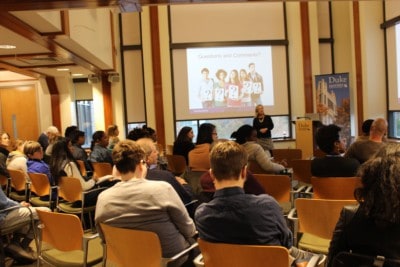

Last year, we started our STEM Tuesday column covering science, technology, engineering, and math education across the state. Check out our top 8 stories for 2018 below, which include stories from Charlotte to Wilmington. Stay tuned for more STEM coverage on Tuesdays this year, and if you’re not signed up yet, subscribe to our monthly STEM education newsletter.
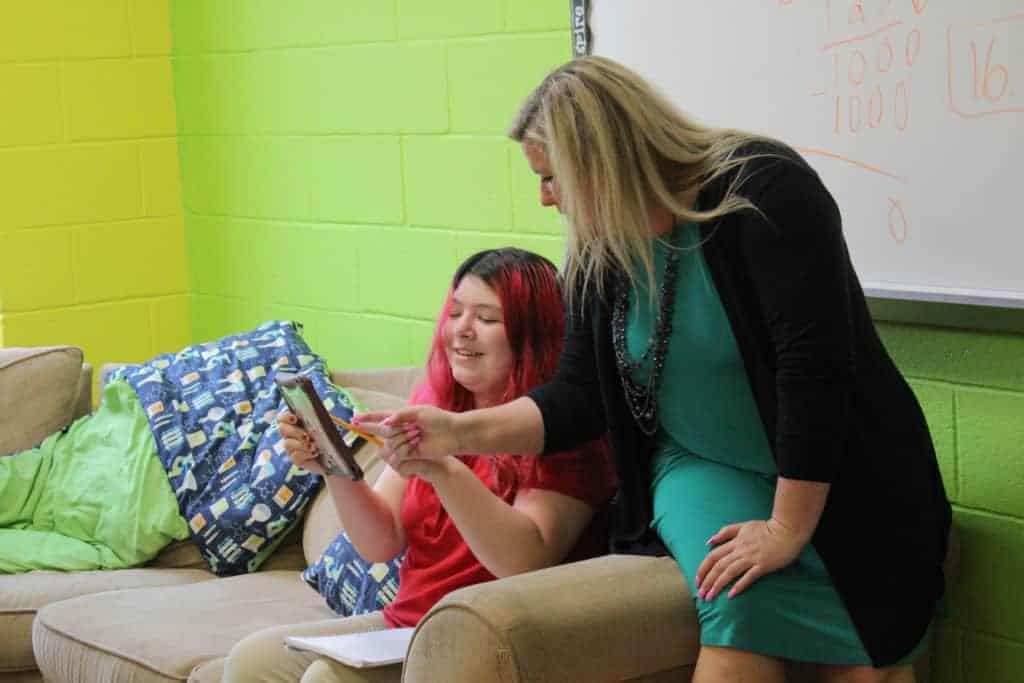

Take a seat: Learning in a deskless classroom
Our top science story of 2018 was a look into an innovative seating arrangement: the deskless classroom, where students read and do work on couches, seated on tires, bouncing on yoga balls, or laying on a carpeted floor. Teachers incorporating the deskless classroom said they found more positive interactions, a less stressful environment, fewer behavior referrals, and better test scores. Read the full story here.
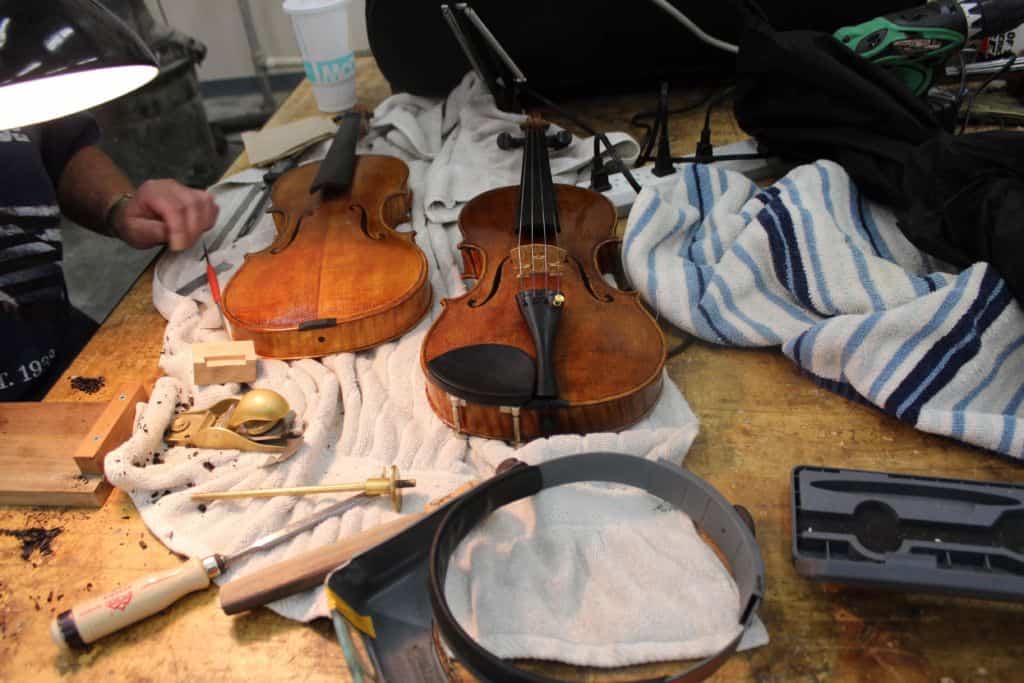

Stringing sound: Violin making at Surry Community College
Our EducationNC team took on a new area of coverage last year: community colleges. With 58 community colleges across the state, often with programs specific to each region, we discovered some fascinating course offerings. The unique violin making class at Surry Community College made one of our top-read science stories. Led by Joe Thrift, the class teaches students to make a violin by hand from start to finish, and it’s quite the endeavor. Even for an expert like Thrift, one violin takes him 200 hours. Learn more about the program here.
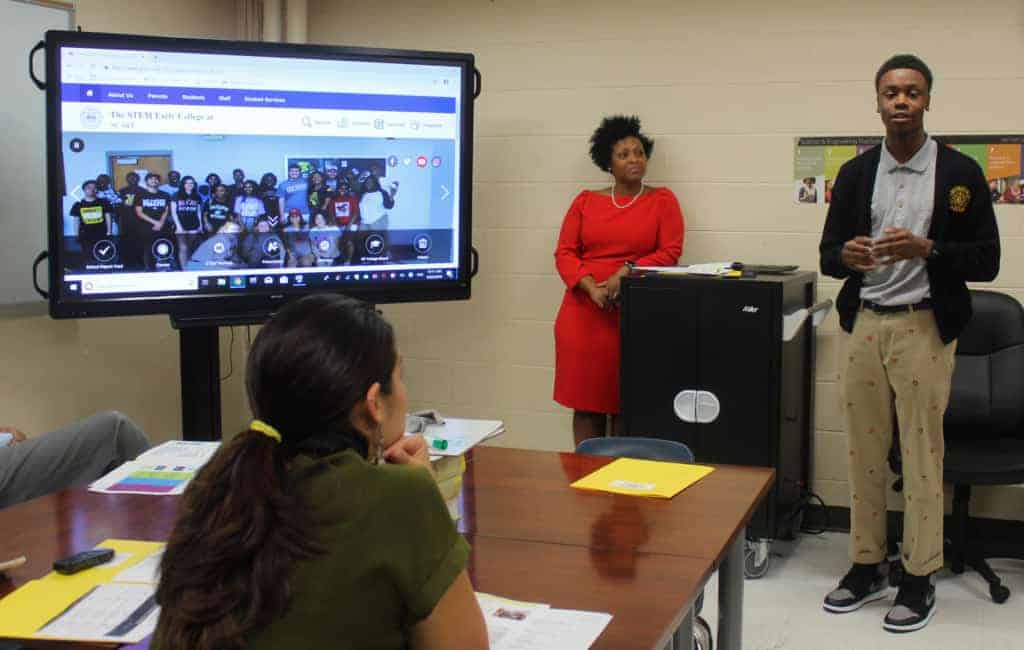

Fashion forward: High school student weaves STEM into style
When Jalani Maxwell was a high school sophomore at the STEM Early College at NC A&T, he designed the 3D shoe sole of the future. Now a senior, Maxwell recently submitted his internship project proposal to the fashion and merchandising department at A&T: a project tackling ready-to-wear fashion in the era of trends and disposable clothes. Read the full story here.
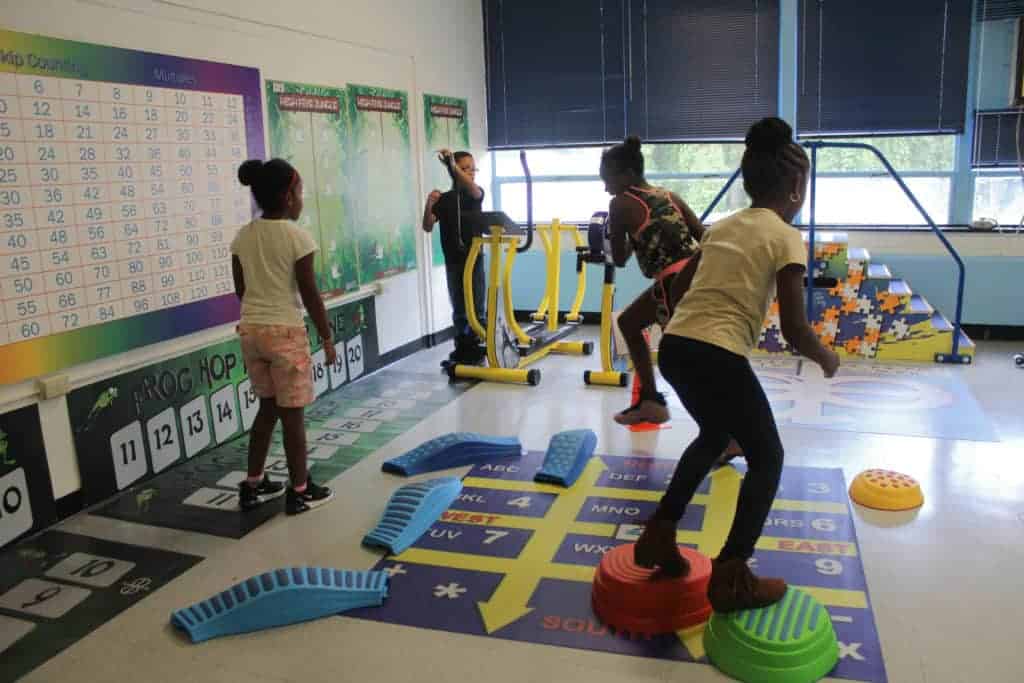

How action based learning is helping Halifax heal
The Action Based Learning Lab is in its premier year at Hollister Elementary, but the lab’s philosophy isn’t particularly novel: kids learn better when they’re active. Looking around the learning lab, you see a lot of activity: jumping, spinning, running, frog hopping, and holding yoga poses. But you also see collaboration between students, such as counting down an exercise or reading instructions together. Watch a video on the learning lab here and check out the story here.
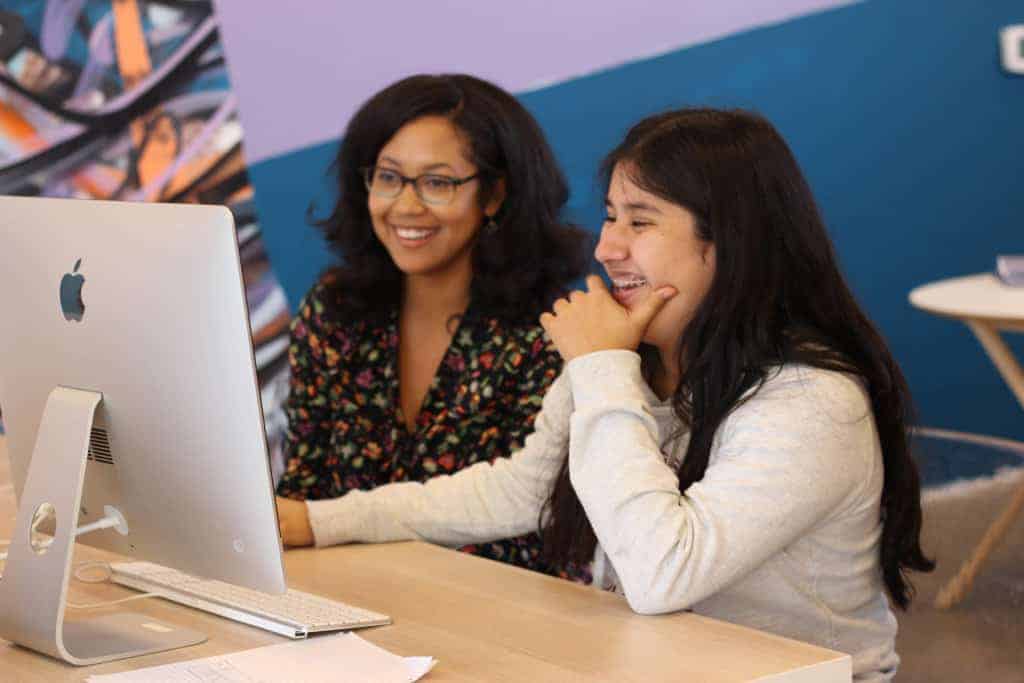

INTech: Bringing girls of color to code
Without programs like INTech, the end results will continue to be bleak in terms of diversity in the tech industry. TechRepublic took a look at Apple’s diversity report from last year: “21% of Apple employees are Asian, 9% are black, 13% are Hispanic, and 3% are multiracial. Some 54% are white.” Meanwhile, women made up only “23% of workers in tech roles, and 32% of employees overall, according to Apple.” And these low numbers of women have real-life professional impacts. Read more here on how INTech is bringing minority girls into the world of tech.
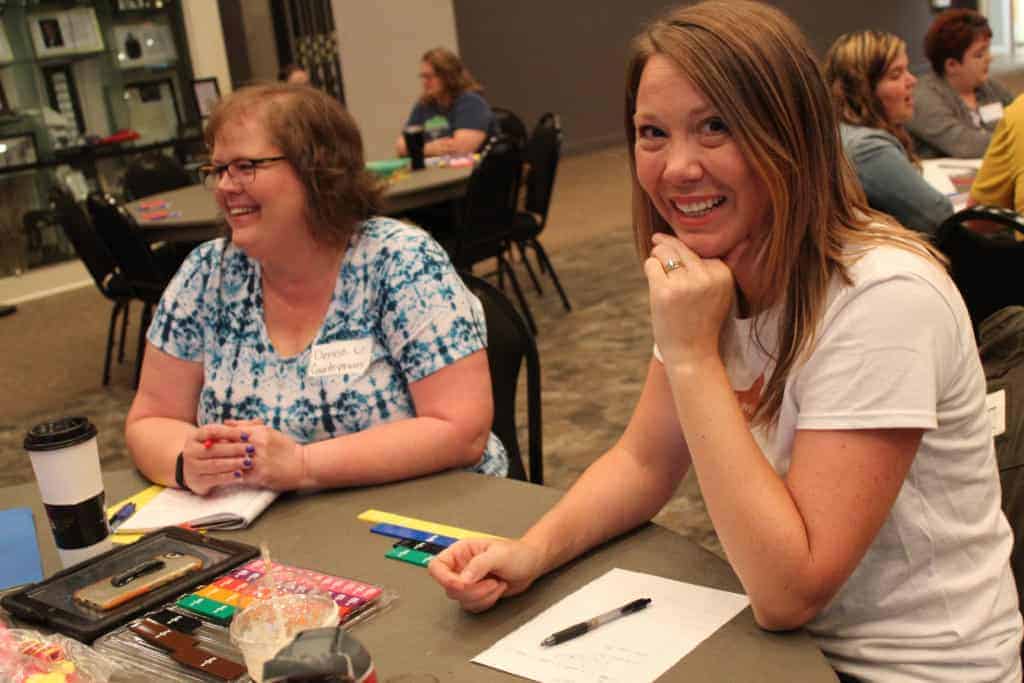

Teachers learn a new way to teach math at a Singapore math summit
I covered a Singapore math summit last year held in Wilkes County. The summit connected teachers across the state who were already using, or were interested in using, Singapore math in their classrooms. Some teachers have used Singapore math as part of the Burroughs Wellcome Fund pilot, which has now moved onto a second phase, while others heard of Singapore math on their own and were interested in learning more about implementing the strategy in their classrooms. Learn more about Singapore math and the summit here.
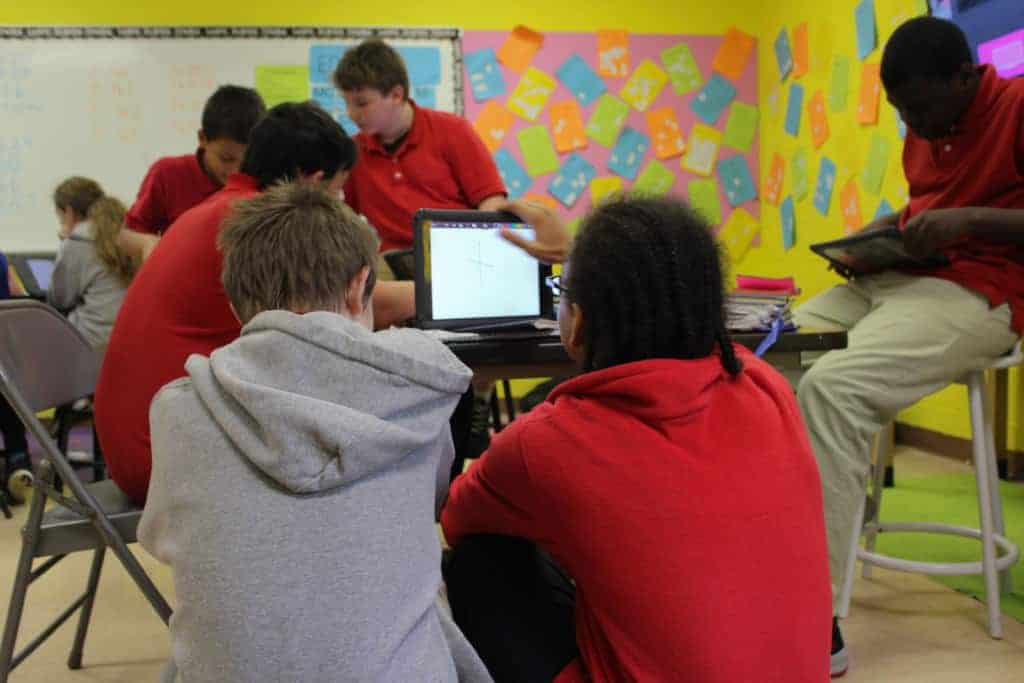

Digital Scholars initiative promotes technology among teachers
In 2016, DigiLearn launched the Digital Scholars Initiative to cultivate teachers as leaders and models for technology use in classrooms. Digital Scholars teachers receive professional development, extended employment, and time outside the classroom to develop leadership and entrepreneurial skills necessary to turn their classrooms into digital learning labs. This story covers the pilot in Rowan-Salisbury Schools. The pilot has recently expanded to Durham Public Schools.
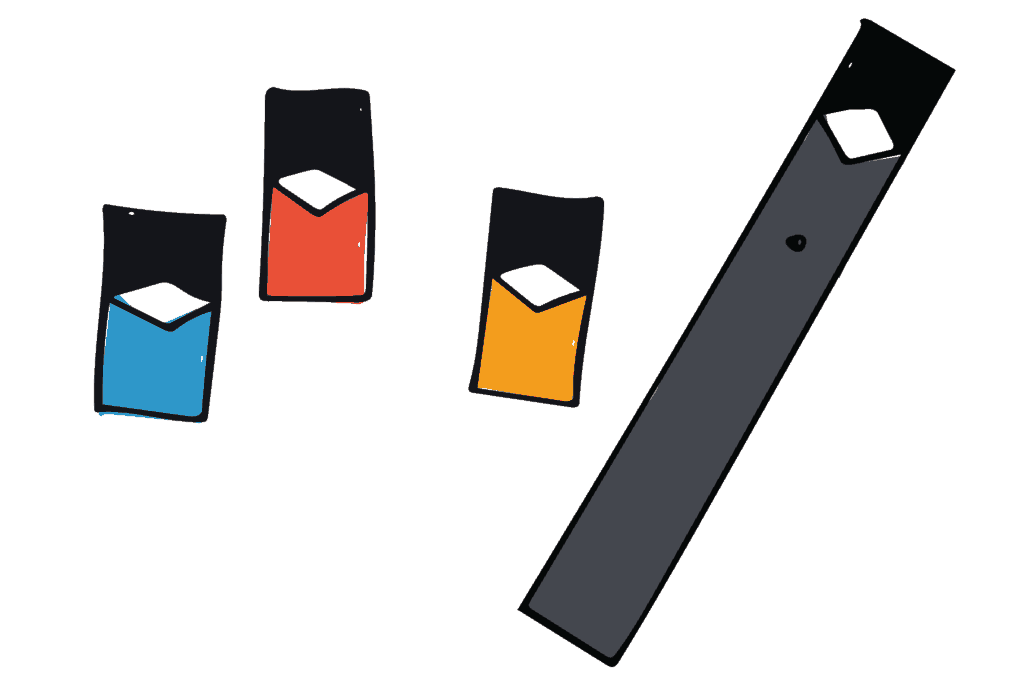

How many puffs in a pod? The science of Juuling
Last month, we released a series on Juuling to discuss the ever-growing issue of student vaping. This included an entry for science Tuesday, looking at nicotine levels of Juul pods versus their e-cigarette competitors. For the story, I stepped into a vape shop to get details on products being sold and also took a look at the social science behind the vaping phenomenon. Read the science story here and check out the full series on student vaping here.
Have a STEM education story idea? I want to hear from you. Email me at ybendaas@ednc.org.


